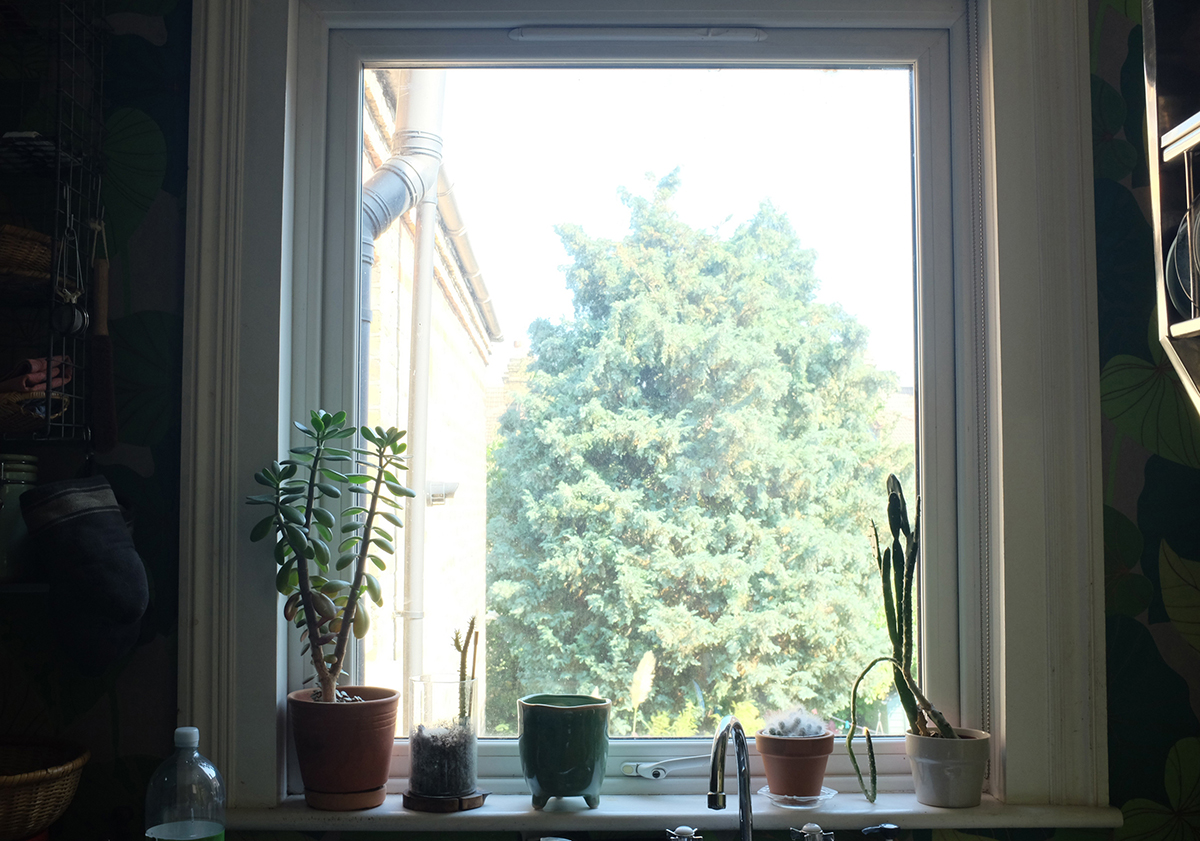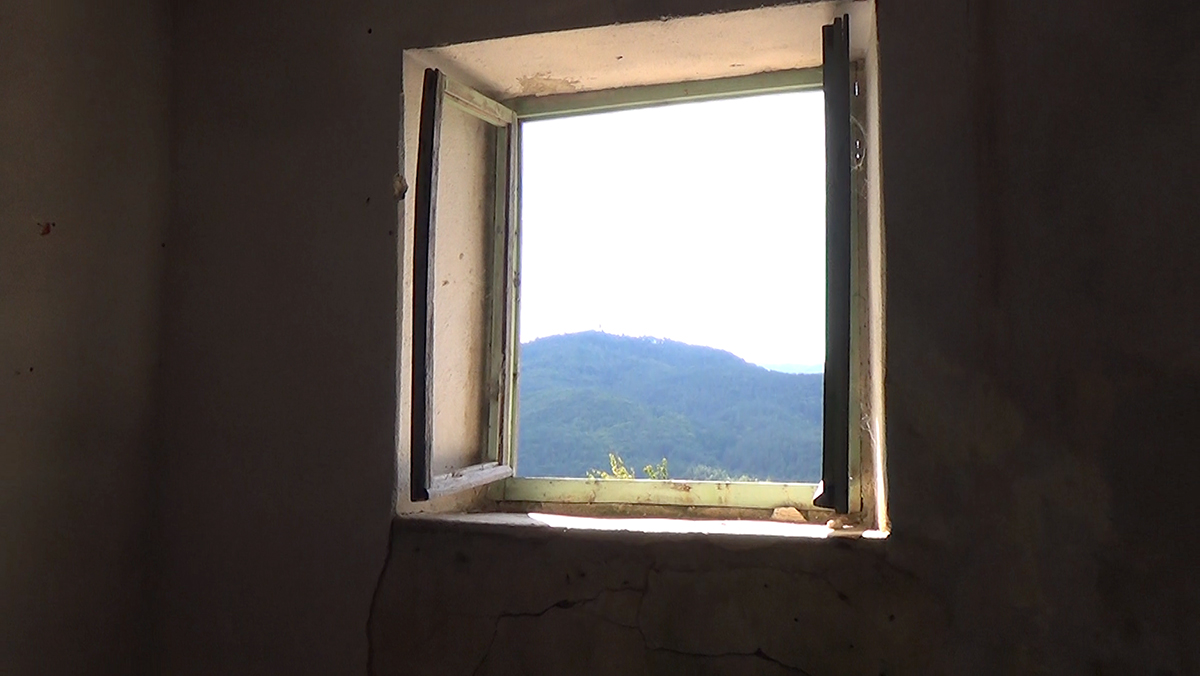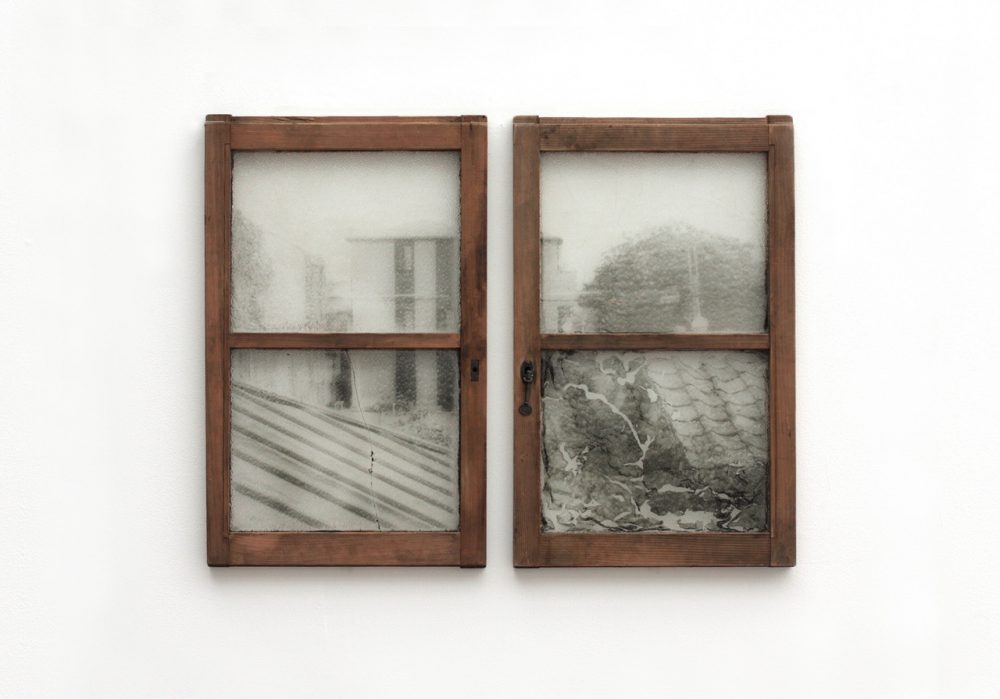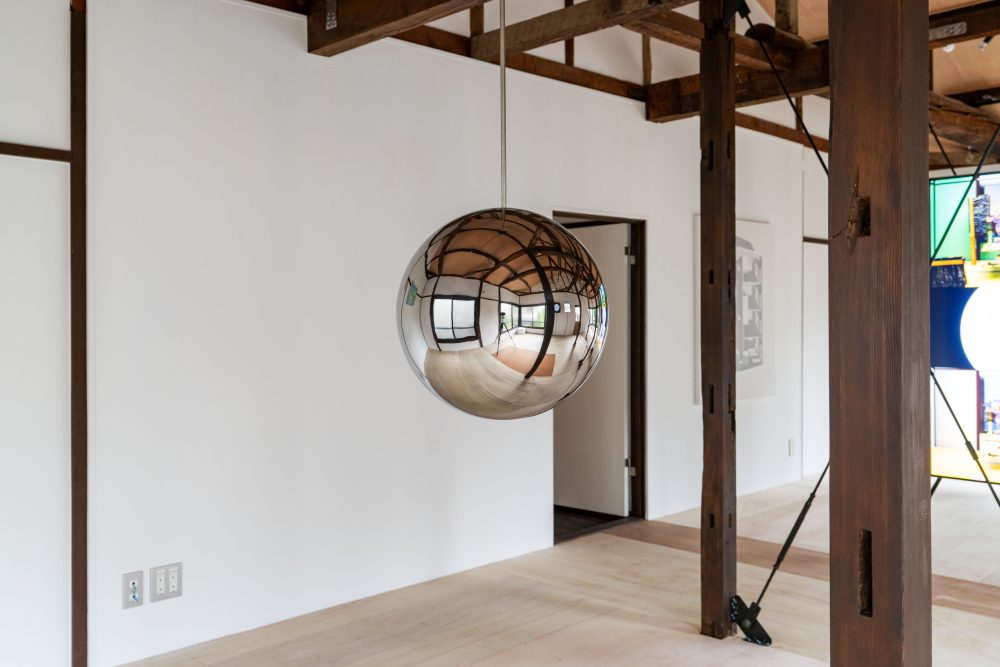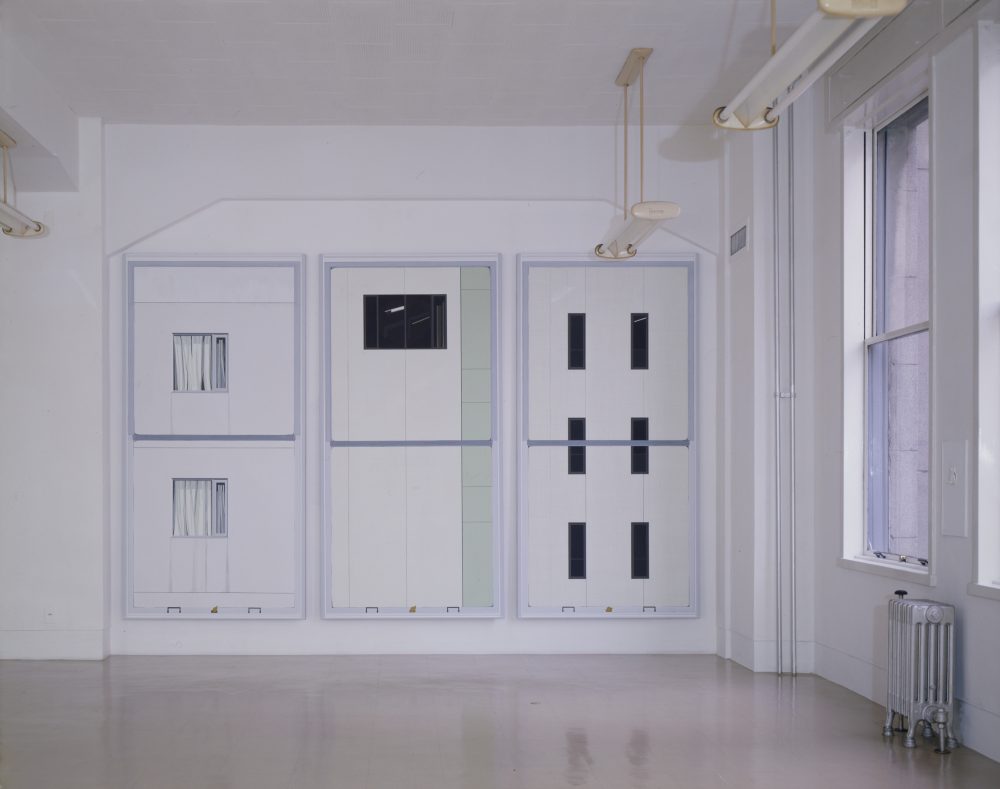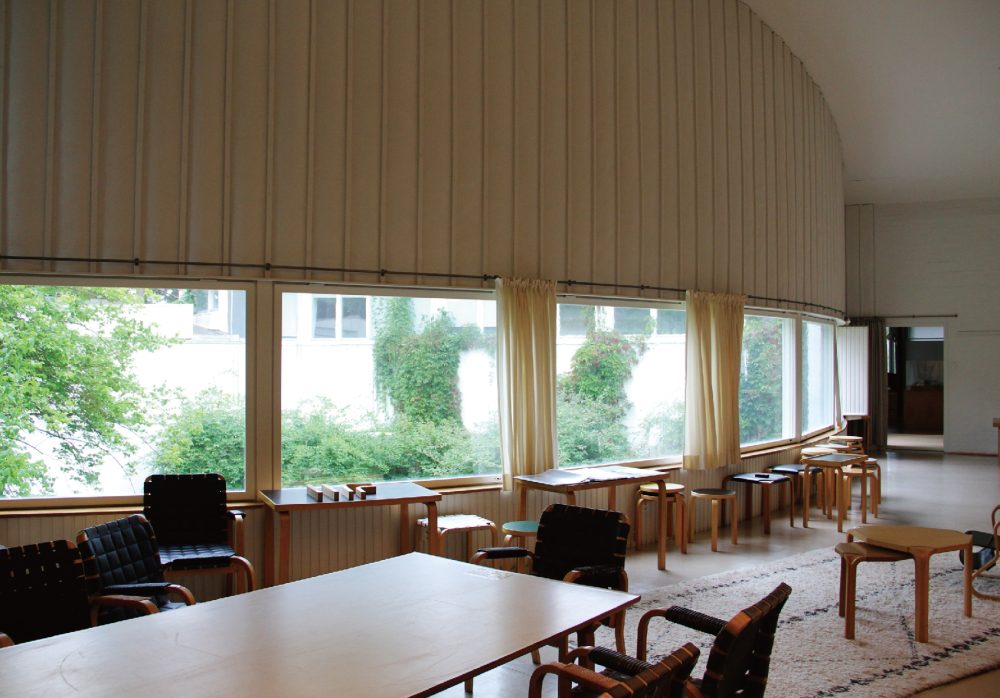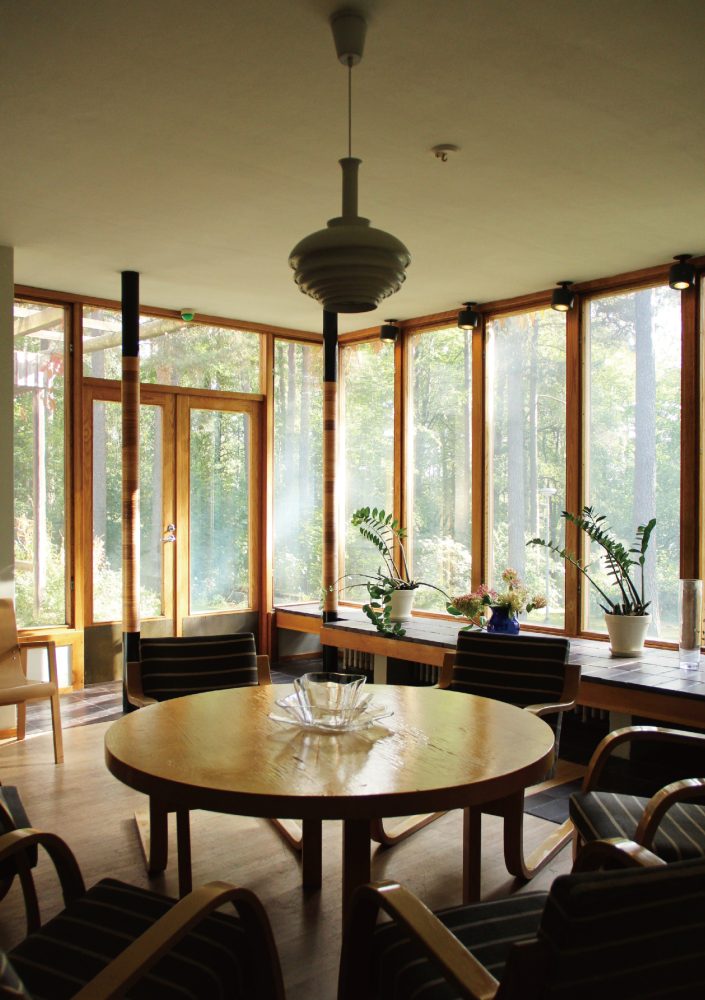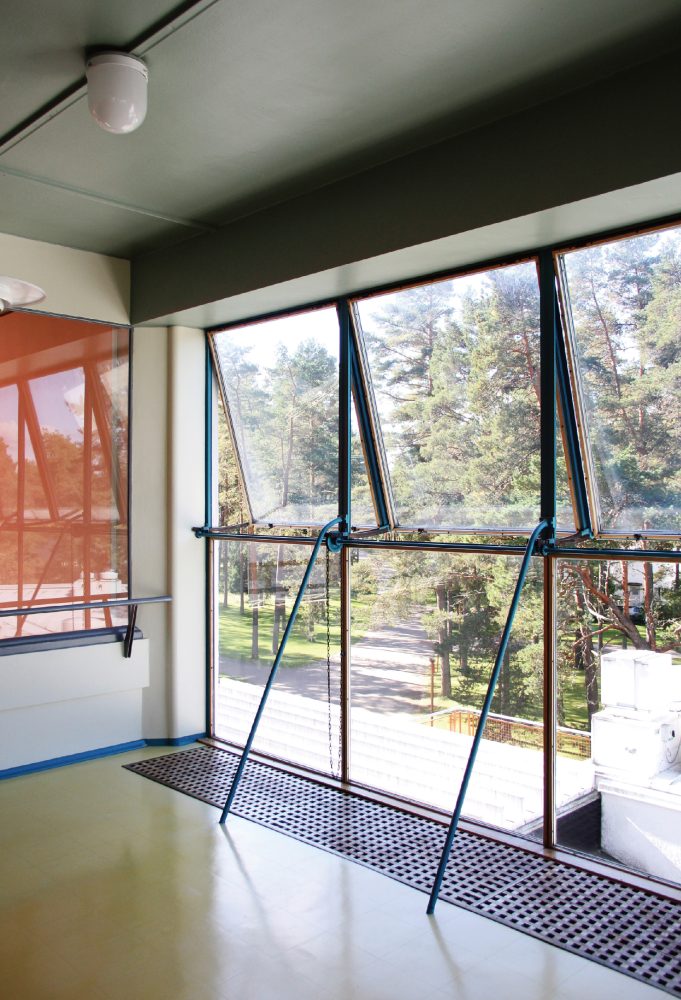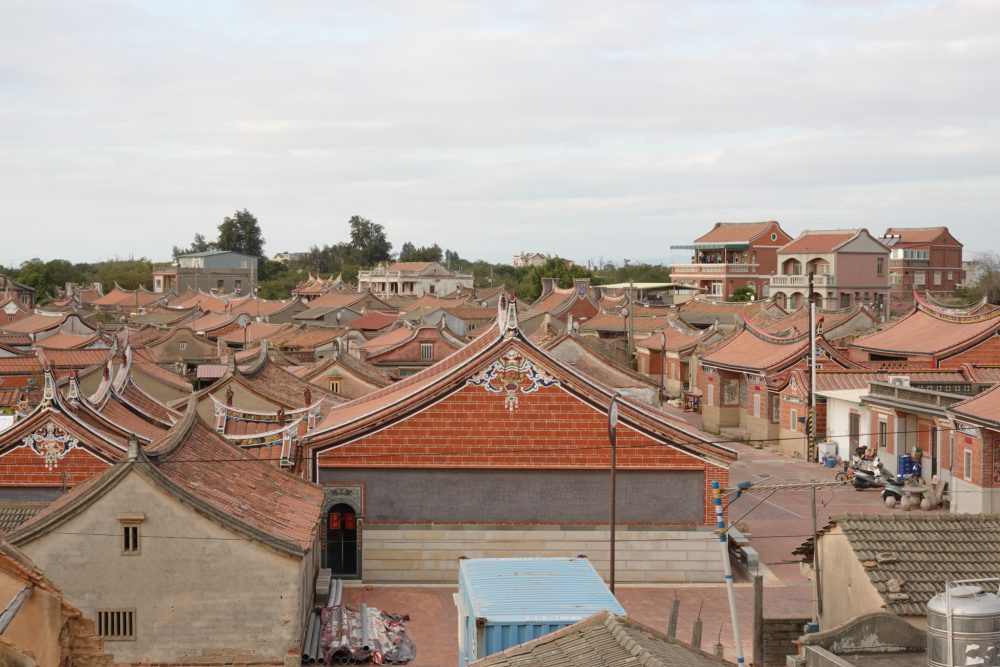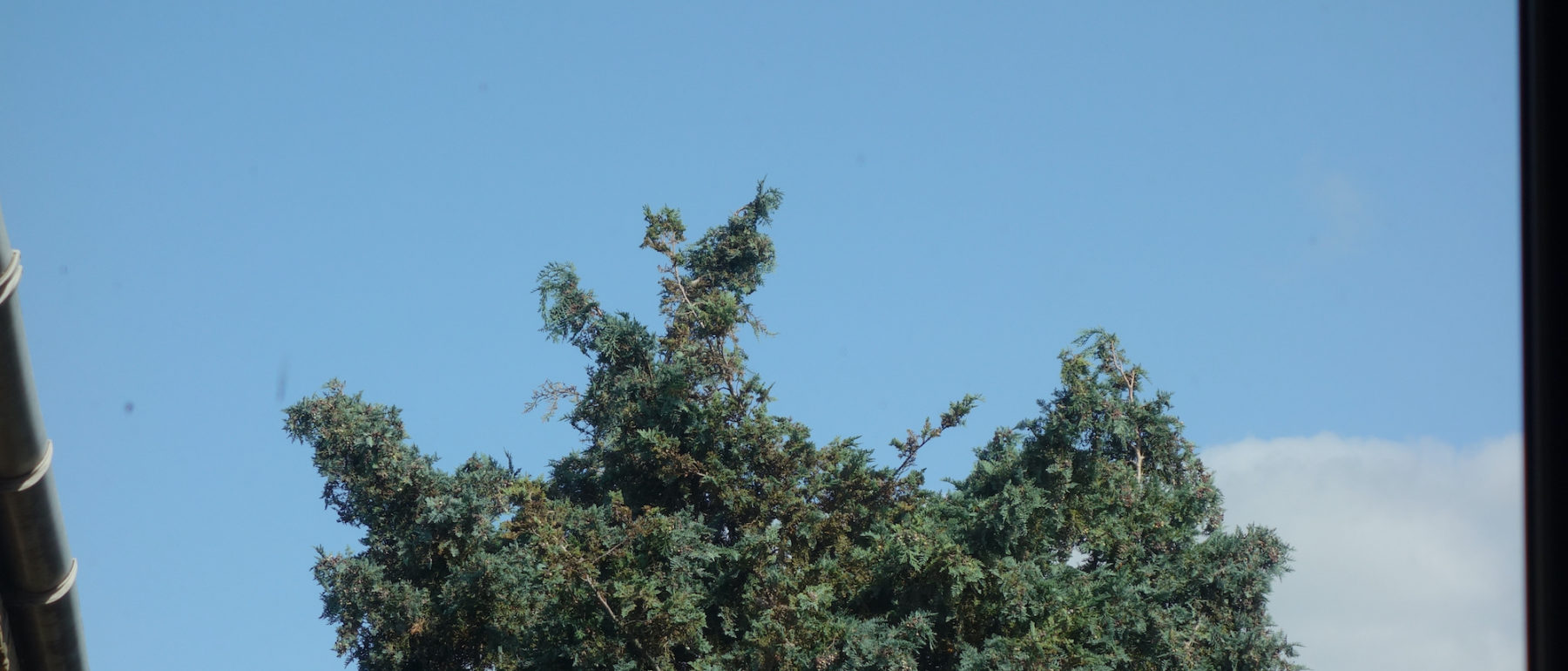
Today/Yesterday #2
09 Mar 2021
- Keywords
- Art
- Photography
This column is the second in a series by artist Yokomizo Shizuka, who lives in London. She weaves together photographs and text to show us what she sees through her windows as the everyday changes dramatically. In this second column, her topic is the sense of “waiting,” in the everyday before and after the outbreak of the novel coronavirus.
From my kitchen window I can see the huge conifer in my next door neighbor’s garden. During the day, the shadow of that huge tree falls mostly on our side. During the lockdown, we were blessed with good weather so that when the sun was out, the girls who live next door would bring out their deck chairs and sunbathe in their garden, all day long.
As spring turned into early summer, lots of birds flocked to that big conifer. At the top are branches that somewhat resemble the shape of a rooster weathervane. When I saw that a bird had happened to land on the branch that was like the head of the rooster, I would sit in my kitchen chair, invisible to the girls sunbathing below, and stare at the bird through my binoculars. The birds sitting on the branches were most often blackbirds or wrens, commonly seen birds. But the blackbird who was sitting at the top of the tall tree surveying the world around it, with the sky as its background, looked rather proud. When I open my window, I hear the sounds of children playing. The airplanes have disappeared from the sky. There is no noise from cars on the street. All I hear are the voices of the birds and the children, and the sounds of everyday life from next door. It feels so much like a summer holiday.
When I came out of my fascination with the sights outside, I find myself wanting to check the time. The clock on our old oven was broken, and there was no timepiece in view. In the East London flat to which we had moved in January, there is a hook on the wall in a place where a clock might hang, but the only clock we have is a small, cheap, plastic alarm clock in the bathroom. There are no clocks hung on any of our walls. Since we can know what time it is by glancing at our computer monitors or mobile phones, I hadn’t felt that the absence of a clock before my eyes was inconvenient. However, having to spend all day every day at home since the lockdown declaration, I often wanted to know what time it is; not enough, however, to start up the computer or look for where I have put my phone. I noticed that happening rather often. Since I don’t have a regular job, there had been no big change in how I spend my time, but the frequency with which I want to know what time it is increased. Even though the everyday view from my kitchen window was as laid-back as a summer holiday, there was a slight sense of tense stillness in the air. It felt like just before the storm, when everyone is holding their breath, waiting. I seem to have breathed that static atmosphere too deeply.
I had had this experience of intense waiting for something before. In the summer of 2013, I participated in a residency organized by artists from the Netherlands. We lived for several weeks in an abandoned village called Tsarino in Bulgaria. The concept of this residency was to produce artwork while living in the empty houses of this deserted village in the mountains of Bulgaria. It caught my interest because of its off-grid environment: no cell phone signal, no electricity or running water. To participate, we had to propose projects that fit the theme the organizers had given us, and, if accepted, we could participate. That year’s theme was “waiting.” In the brief, the organizers explained the idea as that we would live slowly, doing nothing but wait in this place. I was not really sure whether they were serious or making some sort of excuse. But I wanted to think about that theme, so I sent in my proposal.
After arriving at Tsarino, exploring the layout of this abandoned mountain village with no level roads at all, and learning the names and projects of the about a dozen artists participating in the residency, I found an empty house a small distance from the village. In one of its rooms I set up two video cameras, a microphone, clock, and two chairs. Then told the other participants that I would be alone all day in that room, and invite them to come talk when they felt like it. On the wooden door of the empty house I posted a notice that our conversations would be recorded and listed several rules to observe. For the rest of the residency I spent almost every day in that room, waiting from morning till evening for someone to come. One of the rules I posted was that the visitor had to start our conversation. Another was that whoever said something, the other must wait at least a minute before replying. In other words, there would also be at least a one-minute gap between what one said and the other’s response.
Each morning after breakfast I would walk up the mountain path to that empty house. On arrival I would set up my equipment in the room and check that it was operating properly. Then there was nothing left to do but wait. When I opened the window, I saw a large dilapidated barn on a flat space further down the slope. Beyond it I could see the wide open sky and dark green mountains. You may think that I could have taken a nap while I waited, but I dreaded being caught by surprise, so that never crossed my mind. As I waited, I wondered who might turn up and what kind of conversation we would have. I’d stare at the scenery for a while, then check the time on the clock in front of my chair, again and again. I waited with my ears alert for the footsteps of someone approaching the door.
There were times when, as someone began to speak, I would have to point at the clock, but most of those who sat in the chair in front of me obeyed the rules. Every time one of us stopped speaking, they would be silent and wait for one minute to pass. These conversations resembled snapping a growing branch.
One set of words was offered, and resonated in the room. When it gradually fainted, another set was offered. Sometimes the exchange felt like delivering voices and words—that had lost track of time—by hand.
During periods of silence, I emptied my head and waited for what the other would say, or I chewed over what I and the other had said, and from time to time our eyes would track the second hand on the small alarm clock. As we waited for the time to pass, our eyes would meet and we’d smile, perhaps because it was so awkward. This happened multiple times.
Inside that room, the sound of the wind reverberated loudly as one minute slowly passed. In the silence I could almost touch, I found myself sensing the presence of the person before me more clearly. And even the presence of elusive time was almost touchable with my fingertips, as if I could trace the contours of the moment.
About the time that the girls next door had gotten so tanned it looked as if they had just returned from a long beach holiday, the first lockdown was lifted. People started strolling around the neighborhood. The number of vehicles on the streets increased. The windless storm seemed to turn into overcast clouds covering the entire sky and perched there. I was no longer stuck in the house holding my breath, but was finding it difficult to relax. As I gazed at the sky, still breathing through my mask, I waited for the clouds to clear.
Directing one’s mind constantly at something that might arrive sometime: if that is the act of waiting, our everyday activities might be a constellation of on-going waiting without pause. Preparing for tomorrow’s to-dos, making a shopping list, cooking, making art—these are all one way or the other, an act of waiting, for sure. If I managed to do something uneventfully, then I’d conceive of something new in the future and spend my time pressing forward, forward, trying to make its arrival more certain. I couldn’t think of that as waiting because I’d invested my own time in the way I intended, and if something luckily came off safely, it would seem like I myself, freely, had made that happen. Then I’d try again to get past time that would not wait for me and direct my mind and eyes straight at the future.
People feel that they are “waiting” when their flow of time is interrupted, they lose mobility, and they are required to stay right where they are.
I join a queue waiting outside a bank with my mask on. In our slow-moving line, the people in front of me and the people in back of me all have their heads buried in their smartphones. As the wind unexpectedly picked up and I was regretting not having worn another layer, I immersed myself in waiting. Here, I find nothing but my body and the steady passage of time.
Note
Tsarino is a village that was located in the Rhodope Mountains in southern Bulgaria. It had become depopulated when the residents increasingly left for nearby villages where farming and raising tobacco flourished. It had been an abandoned for nearly thirty years when Yokomizo was in residence there.
Shizuka Yokomizo
Born in Tokyo in 1966, this artist lives in London. After majoring in philosophy at Chuo University, she did graduate work in fine art at University of London. Using photography and video, she creates works that explore relationships between self and the world and others.
